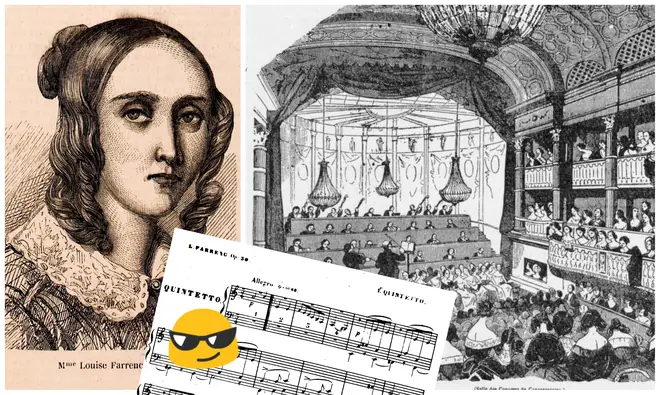On Air Now
Early Breakfast with Lucy Coward 4am - 7am
1 April 2020, 17:05

We're shining a light on one of the most brilliant women of the 19th century, French composer and pianist Louise Farrenc. The 19th-century maestro battled for equality and was driven to make her tomorrow better than today.
Louise Farrenc was a French composer, pianist and teacher everyone needs to know about. She was born in 1804 into a thoroughly bohemian family in Paris and grew up surrounded by sculptors, painters and artistic women. She studied piano from a young age, with her talents picked up and encouraged by the likes of Clementi and Hummel. After becoming interested in composing she applied for the prestigious Paris Conservatory, aged 15.
After completing her studies, Farrenc started her career as a concert pianist, becoming quite famous in the 1830s. In 1842 she became the only woman to be appointed to the position of professor at the Paris Conservatory in the 19th century – the only such appointment for a woman for the entire 19th century. She stayed at the conservatory for 30 years, over which time she became one of the greatest piano professors in Europe.
Read more: 6 reasons why you should listen to Louise Farrenc’s Symphony No. 3 >

Louise Farrenc : Symphonie n°3 en sol mineur op. 36 par l'Orchestre philharmonique de Radio France
Despite not having the popular profile of her male composer counterparts, Louise Farrenc never gave up writing music. She penned orchestral symphonies and overtures (of which Hector Berlioz was a big fan). But it was her chamber music that made the biggest impact, and her two piano quintets were held in particularly high regard amongst the Parisian critics. She won the chartier prize in 1861 and in 1869.
Read more: 21 of the greatest women composers in classical music >
And she won. Although she was writing all this acclaimed music, Farrenc was paid far less than the male professors at the conservatory. She wanted to change this and often protested to the authorities, trying to gain equality for nearly a decade. She also let her music do the talking, and after the very successful premiere of her nonet she once again demanded equal play to her male counterparts, and it was granted. Go her.
Virtuoso, performer, composer, and equality campaigner. As a composer, she never got the popular recognition she deserved during her lifetime, but she kept writing her music and fighting for fairness. What a legend.